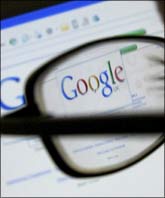 Google Inc is working on a new test version of its search engine, which the company claims will be faster and more relevant than ever before. The company has dubbed the new search engine 'Caffeine'.
Google Inc is working on a new test version of its search engine, which the company claims will be faster and more relevant than ever before. The company has dubbed the new search engine 'Caffeine'.
Look-wise, the new engine doesn't appear different, but its developers hope that the technology they have used will noticeably index new content faster.
Google engineers are said to have invited web developers to test the new search engine, and give their feedback.
Matt Cutts, a principal engineer at Google, and Sitaram Iyer, a staff software engineer, have posted an entry on the company's webmaster central blog, appealing to developers to try the newly improved service and send them some feedback.
"For the last several months, a large team of Googlers has been working on a secret project: a next-generation architecture for Google's web search. It's the first step in a process that will let us push the envelope on size, indexing speed, accuracy, comprehensiveness and other dimensions," The Telegraph quoted them as having written on the blog.
"The new infrastructure sits "under the hood" of Google's search engine, which means that most users won't notice a difference in search results. But web developers and power searchers might notice a few differences, so we're opening up a web developer preview to collect feedback," they said.
A Google spokesperson added: "Google is always working on new technologies to improve the quality of our search services. We hope this new system will improve search in the areas of speed, accuracy, and comprehensiveness."
Martin McNulty, director of search marketing specialist, Trafficbroker, who has tried the new version, said: "Google's caffeine is undoubtedly faster, almost twice as fast at times. It's like a Google GTi. Caffeine may be 'under the hood' but with this noticeable injection of speed it won't remain under the radar for long. As for accuracy, it's hard to say at this early stage but Google is clearly upping its game by including real-time results and more breaking news, as well as updates from the likes of Facebook and Twitter."
Image: A Google search page is seen through the spectacles of a computer user.
Photograph: Darren Staples/Reuters






 © 2025
© 2025